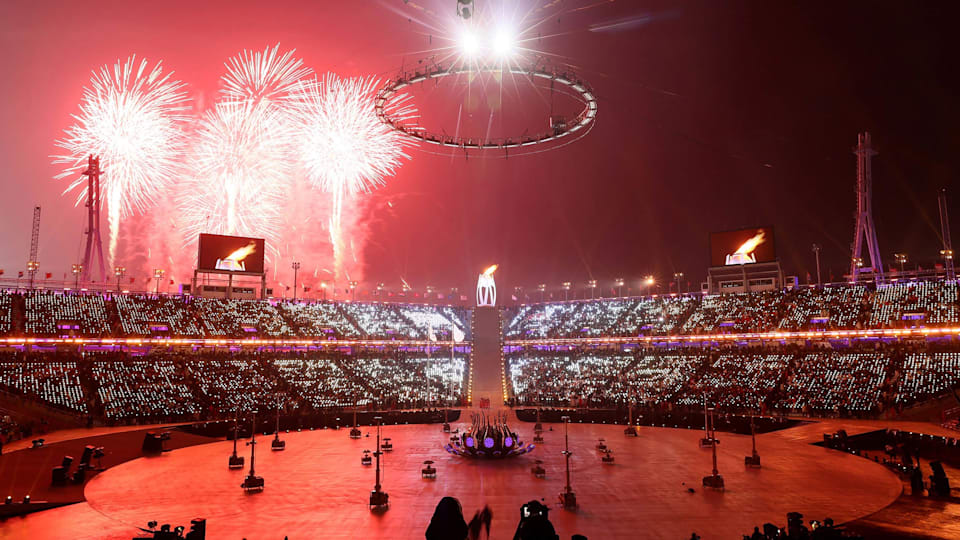PyeongChang 2018 announces surplus of at least USD 55 million

The President of the PyeongChang 2018 Organising Committee (POCOG), Lee Hee-beom, has announced that his organisation has achieved a surplus of at least USD 55 million. This announcement was made during Lee’s final report to the International Olympic Committee (IOC) Session in Buenos Aires.
“We congratulate the Organising Committee of the Olympic Winter Games PyeongChang 2018 for the organisation of outstanding Olympic Winter Games, which were extremely successful in all respects. In recognition of these great achievements, the IOC will contribute its share of the surplus for the benefit of sport in Korea,” IOC President Thomas Bach said.
Any surplus from the organisation of the Games is normally divided between the IOC, the Organising Committee and the host National Olympic Committee for the benefit of sport and the Olympic Movement.
POCOG is yet another example of Organising Committees breaking even or creating a surplus that can be used for the development of sport in the host nation. Its ability to create a surplus was assisted by the implementation of Olympic Agenda 2020 and the philosophy behind its New Norm. Despite the fact that POCOG was already well into its preparations when Olympic Agenda 2020 was approved, by working with the IOC in a spirit of partnership, the Korean organisers were able to benefit from cost-reducing or revenue-increasing measures such as the first turnkey solution delivered by the IOC to a Games organiser with the Olympic Information Service; 30,000 accredited seats being given back for public sale; no secondary “mountain” International Broadcast Centre (IBC), a 30 per cent smaller IBC; and a Main Press Centre that was moved to an existing structure, all while preserving the athlete and spectator experience.
Showing that the IOC has truly turned the page, the impact of Olympic Agenda 2020/New Norm just been felt not just in the Republic of Korea but across all of the future Olympic Games host cities. For Tokyo, both Tokyo 2020 CEO Toshiro Muto and IOC Coordination Commission Chair John Coates spoke about how Olympic Agenda 2020/New Norm has now allowed Tokyo 2020 and its delivery partners to save USD 4.3 billion – USD 2.2 billion saved during the review of the venue masterplan and an additional USD 2.1 billion since the introduction of the New Norm at the IOC Session in PyeongChang earlier this year.
The next Olympic Winter Games after PyeongChang will be held in Beijing, People’s Republic of China, and IOC Coordination Commission Chair Juan Antonio Samaranch described Beijing 2022 as achieving extraordinary milestones at an incredible speed. Beyond the legacy objective of bringing 300 million people to winter sport and its record-breaking marketing programme, Beijing 2022 has embraced Olympic Agenda 2020/New Norm by adopting this new way of working, for example by working more closely with the International Federations on venue and sport delivery or delivering only venues that fit into the long-term development plan of the region.
Finally, the two latest Olympic hosts of Paris 2024 and LA 2028, presented to the IOC Session about their progress, which is based on the full implementation of Olympic Agenda 2020/New Norm. Chair of the IOC Coordination Commission for Paris 2024 Pierre-Olivier Beckers-Vieujant underlined how the new philosophy was permeating all aspects of the Organising Committee’s work. The spirit of co-construction is very much alive in Paris with, for example, strong International Federation support resulting in a better masterplan for Paris, which was approved by the IOC Executive Board last week, and the support of the National Olympic Committees in ensuring the delivery of an optimised Olympic Village that, like the venue masterplan, will leave a great legacy for the local population.
On the side of LA 2028, Coordination Commission Chair Patrick Baumann explained that the co-construction of LA’s Games was well underway with the IOC, and that the tripartite agreement between the IOC, Paris 2024 and LA was already creating good opportunities to exchange ideas and look at synergies to define and implement a new model for Games delivery. Baumann also explained that LA had been granted the right to invest up to USD 160 million in youth sports in the years leading up to the Games, and that work was now underway with the City of Los Angeles and other key partners to identify the best mechanism of using these funds. However, in line with Olympic Agenda 2020/New Norm, LA 2028 will enter its operational phase only in a few years’ time.
The International Olympic Committee is a not-for-profit independent international organisation made up of volunteers, which is committed to building a better world through sport. It redistributes more than 90 per cent of its income to the wider sporting movement, which means that every day the equivalent of 3.4 million US dollars goes to help athletes and sports organisations at all levels around the world.
For more information, please contact the IOC Media Relations Team:
Tel: +41 21 621 6000, email: pressoffice@olympic.org, or visit our web site at www.olympic.org.
Broadcast quality footage
The IOC Newsroom: http://iocnewsroom.com/
Videos
YouTube: www.youtube.com/iocmedia
Photos
For an extensive selection of photos available shortly after each event, please follow us on Flickr.
To request archive photos and footage, please contact our Images team at: images@olympic.org.
Social media
For up-to-the-minute information on the IOC and regular updates, please follow us on Twitter, Facebook and YouTube.